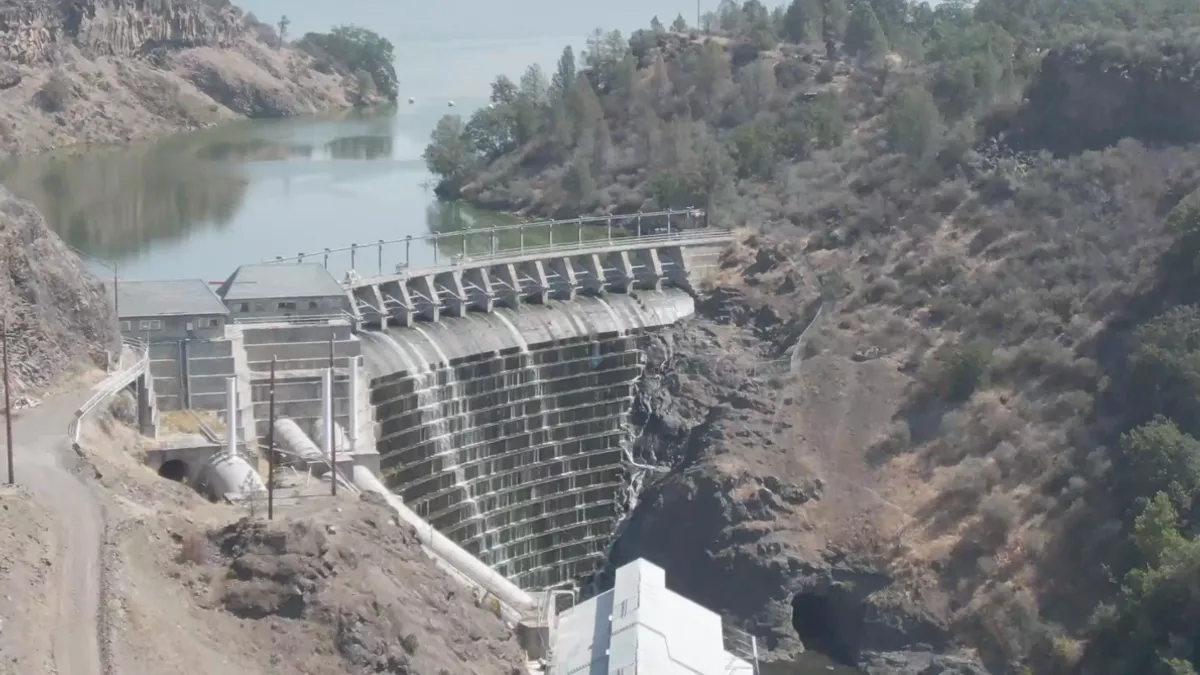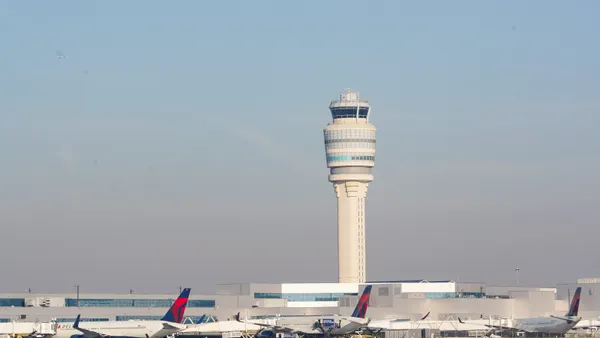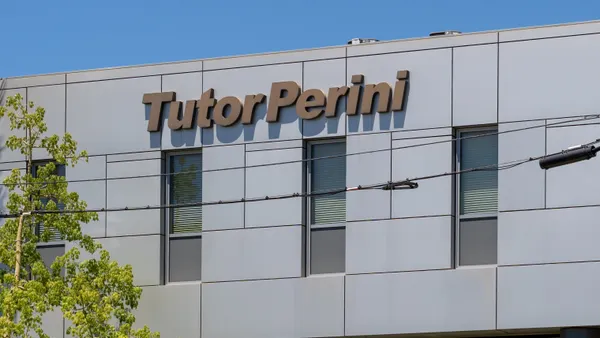UPDATE: June 27, 2023: Nebraska contractor Kiewit has begun demolition work on the smallest of four dams, Copco No. 2, on the Klamath River in Oregon, according to a press release from the Klamath River Renewal Corp. Final decommissioning and complete removal are expected by September.
So far, gates, a walkway and two of five bays down to the spillway have been removed. This work was done to direct waters around the dam, rather than over it, allowing construction crews to work through the summer, according to the release.
The other three dams — Iron Gate, Copco No. 1 and JC Boyle — are expected to be removed in 2024, the release said.
Dive Brief:
- Preconstruction work is underway on the largest dam removal and river restoration project in U.S. history. The $450 million project will take out four hydroelectric dams on the Klamath River in Oregon and California to restore habitat and passage for migrating fish.
- Omaha, Nebraska-based Kiewit is the prime contractor while Knight Piesold, headquartered in South Africa, is the civil prime design partner on the project. The Federal Energy Regulatory Commission approved the project in November 2022 and it is set to wrap in 2024.
- The Klamath River Renewal Corp. took over ownership of the dams from Pacific Power in 2021 and will work with experts to monitor the impact of their removal on the river in coming years. Area tribes, fishery owners and environmental groups hope that salmon will return to what used to be the third-largest salmon-producing river on the West Coast.
Dive Insight:
The dam removal is a key step in restoring the health of the Klamath River and the surrounding ecosystems, economies and communities that depend on it, according to FERC. After the dams are out and the reservoirs drained, restoration contractor Resource Environmental Solutions and local tribes will plant around 19 billion native seeds to nurse surrounding ecosystems back to health, according to Jefferson Public Radio.
Removal work will begin this summer, starting with Copco 2, which should be gone by this fall, according to ABC 12. The other three dams — Copco 1, the Iron Gate Dam and the JC Boyle Dam — will be removed by the end of 2024.
This project is being delivered through the progressive design-build model to allow early collaboration and problem-solving by the project owner, contractor and designer, according to Kiewit. The firm is looking to award several small bid packages to subcontractors, according to the contractor’s website.
More dam removals on the horizon
The $1.2 trillion Infrastructure Investment and Jobs Act contains $3 billion for dam projects over five years. Specifically, the IIJA adds $585 million into the High Hazard Potential Dams Grant Program — more than 18 times what the federal government gave out from 2019 to 2021, according to the AP — with $75 million designated for dam removal.
Experts say while this is a significant uptick in funding, it’s not enough to fully address the country’s urgent dam repair and removal needs. While dams offer benefits, they also harm river ecosystems, deplete fisheries and alter recreational opportunities. There are now thousands of outdated and obsolete dams across the U.S., some of which pose a danger to surrounding communities.
In 2022, 65 dams were removed across the country, which reconnected more than 430 miles of river across 20 states, according to environmental nonprofit American Rivers. The top states for dam removal last year were:
- Ohio, with 11 removals.
- Pennsylvania, with 10 removals.
- Virginia, with 6 removals.














